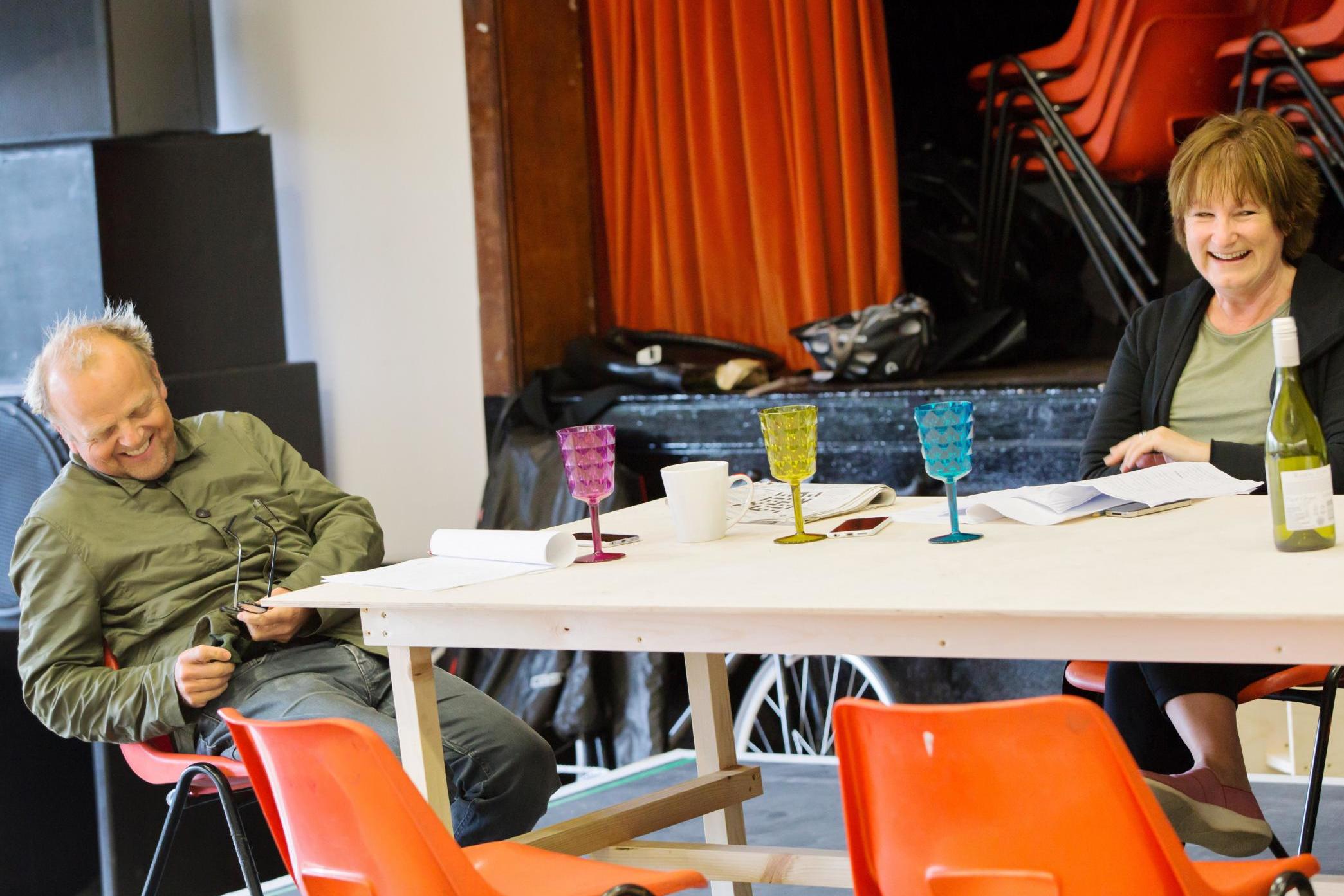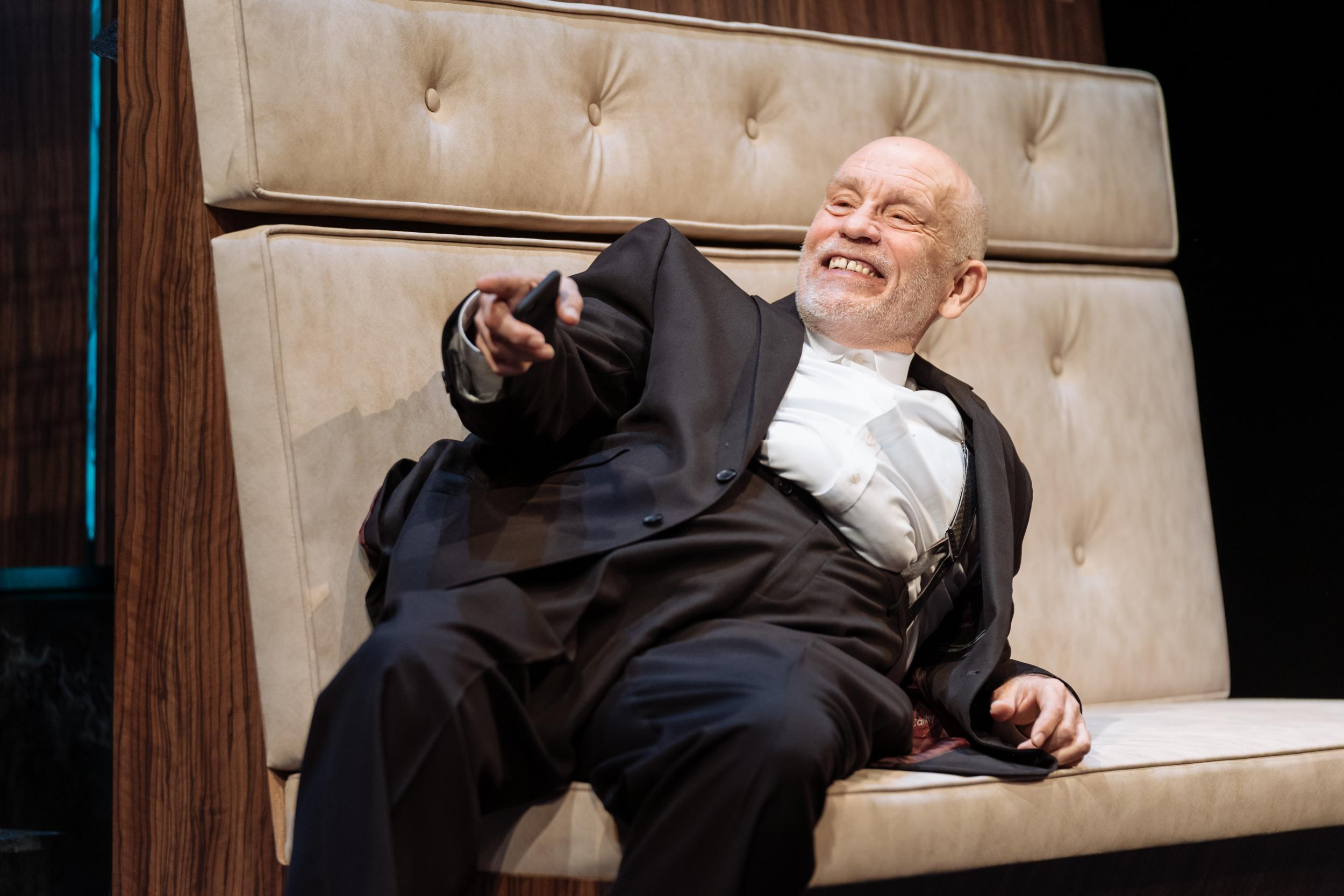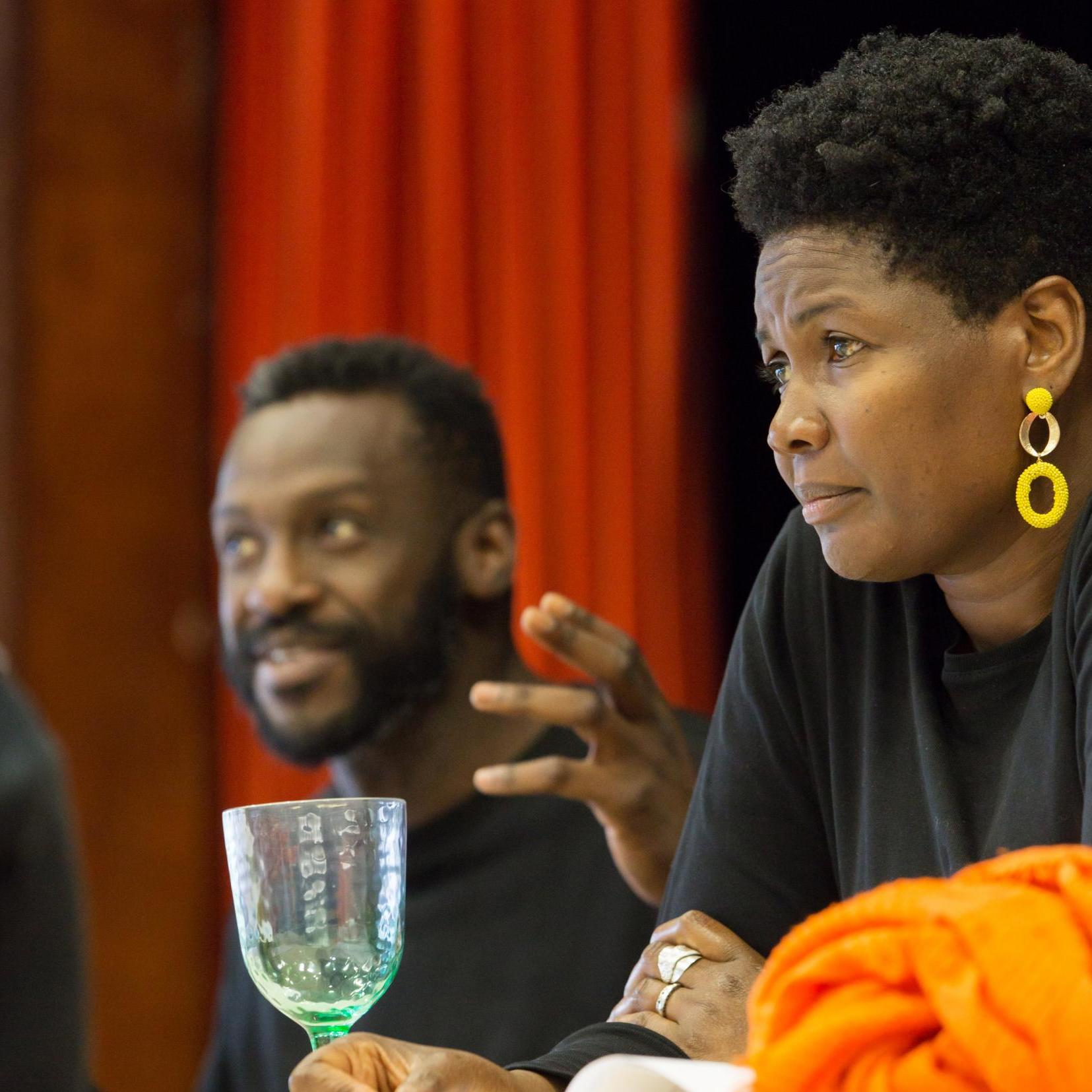Harvey Weinstein: Could Caryl Churchill’s new play be the first to do justice to the Hollywood scandal?
Attempts to give theatrical space to the #MeToo movement have not been encouraging, writes Paul Taylor. Could ‘Glass. Kill. Bluebeard. Imp.’ be the answer?

Your support helps us to tell the story
From reproductive rights to climate change to Big Tech, The Independent is on the ground when the story is developing. Whether it's investigating the financials of Elon Musk's pro-Trump PAC or producing our latest documentary, 'The A Word', which shines a light on the American women fighting for reproductive rights, we know how important it is to parse out the facts from the messaging.
At such a critical moment in US history, we need reporters on the ground. Your donation allows us to keep sending journalists to speak to both sides of the story.
The Independent is trusted by Americans across the entire political spectrum. And unlike many other quality news outlets, we choose not to lock Americans out of our reporting and analysis with paywalls. We believe quality journalism should be available to everyone, paid for by those who can afford it.
Your support makes all the difference.In October 2017, as a host of sexual assault allegations were being levelled against Kevin Spacey, the Royal Court’s artistic director Vicky Featherstone was invited onto the Today programme to discuss them. The actor had been in charge of the Old Vic up until 2015, and there had been rumours about him, she claimed, stepping up to the plate with alacrity and punch, for some time. And about others, too. “Everyone up to this point has been complicit,” she said. “And we can’t be complicit anymore.”
With these words, Featherstone – who became the Royal Court’s first female artistic director in 2013 – tore away the muzzling constraints that had stopped discussion of ills within the industry at large: sexual harassment, bullying, silence extorted by various types of threat, the rehearsal room as a surreptitious paradise for perverts, etc. When it comes to British theatre, the Royal Court has led the way in confronting – with imagination and practical wisdom – the world that the #MeToo movement has exposed in its sordid awfulness.
In 2018, Featherstone shot to the No 1 spot as the “the most influential person working in British theatre” in the Stage newspaper’s annual 100 Power List. The honour was for the speed and force of her initiatives, such as the “No Grey Area” Town Hall Sessions at the Court, for people who wanted their stories to be heard with the safeguard of anonymity (a team of people were on hand to read out testimonies that had been submitted in an open call). These bore fruit in the shape of the Old Vic’s new Guardians programme (staff trained to listen to concerns about behaviour or the culture at work) and to the publication of a handbook: Encouraging Safer and More Supportive Practices in Theatre.

Only someone fiercely focused could have brought this about. But Featherstone is also humorous, good-humoured and alive to the fact that #MeToo is a work in progress. Last spring, for example, the National Theatre had an embarrassing week. When the opening of its excellent revival of Top Girls – the 1982 feminist classic by Caryl Churchill, which was written after the election of Britain’s first female Prime Minister and which contends that it is counterproductive for women merely to replicate a Thatcherite male success ethic – happened to coincide with a (partial) season announcement by the venue that featured no female writers. It is characteristic of Featherstone’s friendly nature that she chipped in with the correct observation that the NT was “in fact, now producing more female playwrights than ever before”.
Of course, Caryl Churchill is historically – in both senses of the word – a Royal Court writer, with an association that stretches over decades. She is a glorious combination of lifelong socialist-feminist, whose work conveys the relatedness of diverse forms of oppression, and artistic genius, who is accurately described as “the Picasso of modern playwrights”. Now in her ninth decade, Churchill is still tirelessly reinventing dramatic form so that the meaning is distilled to its elliptical essence.
Featherstone relishes the frisson of mischief that the anticipation of her new plays impart. This week, the Court unveils a batch of the four latest, performed back to back on the same night, staged by her preferred collaborator James Macdonald and entitled: Glass. Kill. Bluebeard. Imp. Speaking to me via email, Featherstone points with amused relish to a stage direction in Glass. “There should be no attempt to make the glass girl look as if she is made of glass. No effort making her seem invisible etc. She looks like people look.” This is the kind of imaginative challenge typical of Churchill’s pieces, and is why the Court is prepared to “move heaven and earth” to fit them into its schedule.

It is the mention of the name Bluebeard, though, that will get the antennae of avid Churchill-watchers twitching. Attempts to give theatrical space to the Weinstein scandal (he persists in denying all allegations of rape and sexual assault as he goes to trial) have not been encouraging thus far. To put it mildly. David Mamet’s Bitter Wheat – with John Malkovich in the central role – landed in the West End in June with all the impact of a soggy loo roll. After sitting through it, I thought that it should be instantly re-marketed in that lucrative theatrical franchise of satirically deliberate flop: “The Play About Harvey Weinstein That Went Wrong”. The pain of the female victim of his sexual predation was relegated to the margins, as Mamet recycled the horrors of mind-boggling manipulativeness as a laboured farce, lazily shackled to what we already knew through the news. I was not surprised to learn later that the dramatist Mathilde Dratwa has actually written a show called “A Play About David Mamet Writing A Play About Harvey Weinstein”.

Caryl Churchill is partial to the twisted fairy tale as a way of breaking free from literal-minded transcription – as she has shown in pieces such as The Skriker (1994), her prescient foray into eco-conscious magical realism, and Far Away, a masterpiece first seen in 2000. One is left wondering if she intends to refract the subject of Weinstein, Trump, Epstein and the rest of the grisly gang through the serial wife-killer of fable. Bluebeard’s story is one of indefatigable fascination, whether interpreted in the psychological unease of Bartok’s opera Bluebeard’s Castle or from a fantastical, spiky feminist angle in Angela Carter’s collection The Bloody Chamber.
Featherstone says that the conversations she has had in the ferment of these last few years have been “unlike any that I’d had in my entire career”, and recognises that deep, lasting change involves women becoming “gatekeepers within the theatre”. The #MeToo movement makes one think harder about the politics of representation both offstage and onstage. “I represent Ruth Wolff. That’s it,” declares the central character in The Doctor, Robert Icke’s provocative play at the Almeida. She’s a medic who is rigorously idealistic but politically naïve to a reprehensible degree and not, in any simple sense, the play’s spokesperson. So it’s disappointing that some people seem to think that The Doctor is inviting cheap laughs at the expense of the identity politics of groups that bring her down. It’s as though they think that to be an expert in neo-colonialism automatically makes a person a risible example of political correctness gone mad. Icke’s play is certainly troubled by identity politics, but in a much more nuanced, thoughtful way. How could this not be the case, given the production’s pointedly liberal gender-blind and colour-blind casting?
Featherstone is wise to the stresses, anomalies and inconsistencies to which #MeToo might give rise – such as writers feeling overburdened by a perceived need to be “representative”. Though she notes acerbically that the two plays that have tried to incarnate Weinstein head-on are “by two middle-aged men”, it’s unthinkable that men are going to find themselves censored under her watch. She commissioned and directed The Cane, a piece by Mark Ravenhill that plays like a wittily astringent sidebar to #MeToo. As he prepares for his retirement party, a babying mob of schoolchildren gang up on the elderly protagonist, raising not irrelevant questions about how fair it is to judge past actions by current standards. She also gave Anthony Neilson his head with The Prudes, a devised piece that pokes fun at a man now so worried about being “woke” that his willy has wilted. Looking over the Court’s upcoming season, I note a piece called Two Palestinians Go Dogging. The title has all the solemnity of one those Enid Blyton spoofs: Five Go on a Strategy Away Day. I do not think that in this present regime, the theatre is about to lose its knack for treating serious subjects in a spirit of revelatory playfulness.

At the start of 2018, Featherstone experienced a belated baptism of fire as a #MeToo figurehead. Having just encourage folk to come forward with stories of abuse, it did not seem the most propitious time for the Court to be welcoming Out of Joint’s touring revival of Andrea Dunbar’s 1982 play, Rita, Sue and Bob Too, about two fifteen-year-old school girls who have sex with a 27 year old man, mostly in the lowered seating of his car. So she cancelled the invitation. And then she reversed that decision. This was a wise move. It dispelled any intimation that the Court was in effect silencing a working class voice, and the current conversations benefited from the historical perspective the revival afforded. It’s no wonder, though, that Featherstone confessed to finding the situation “highly conflictual”. Max Stafford-Clark – the Court’s longest-serving director (1993–2016) – had mentored and championed Dunbar’s writing, and was scheduled to direct the play for a third time, before being forced to step down after allegations of inappropriate sexualised behaviour.
Some have taken a grim satisfaction in hideous ironies of the case. Some people have implied that his behaviour behind the scenes should strip the great director – and key champion of women’s writing – of any credit for his manifestly enlightened contributions. Schadenfreude, one might interject, reflects well on nobody. To their great credit, Featherstone and Churchill, both of whom he worked with closely, have maintained a scrupulous public silence on the topic.
Right now, the anticipation for the latter’s batch of new plays in intense. Is she going to use the tactic of fairy tale refraction in one of them? Will this give a jolt of defamiliarising immediacy to depravities that have grown dog-eared in the telling? Is Bluebeard in for a bracingly close shave?
‘Glass. Kill. Bluebeard. Imp.’ is showing until 12 Oct; royalcourttheatre.com
Join our commenting forum
Join thought-provoking conversations, follow other Independent readers and see their replies
Comments